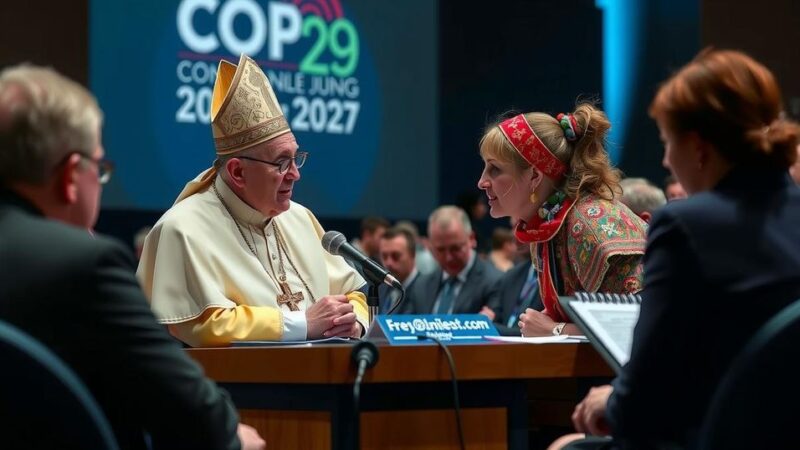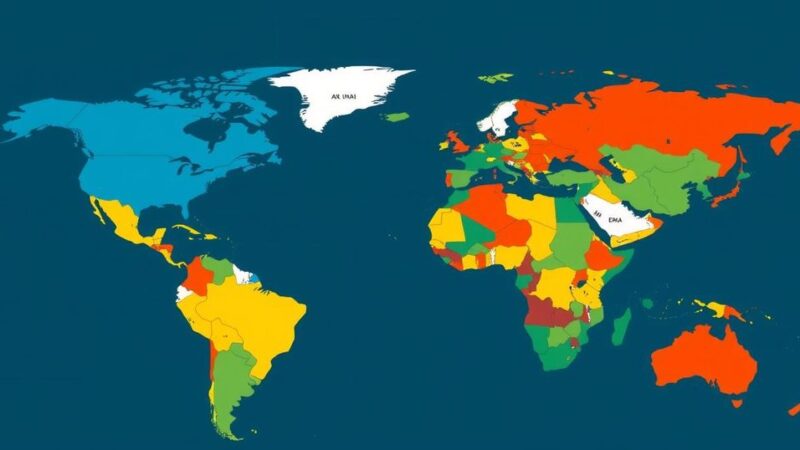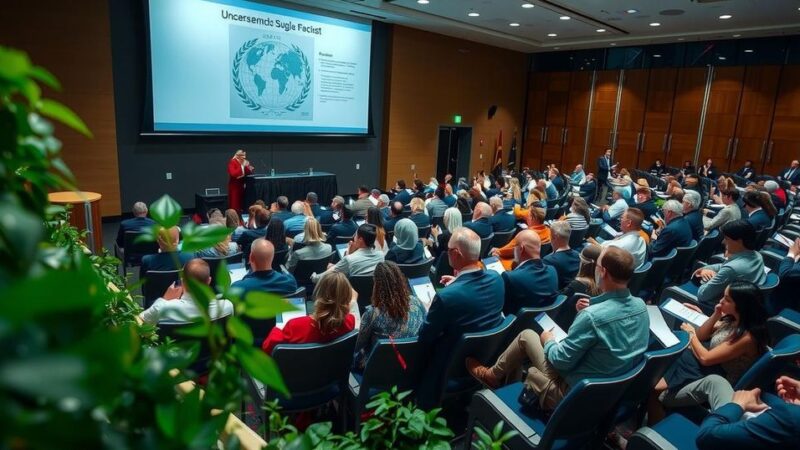UCSC artist micha cárdenas is addressing climate change through her exhibition “Probability Engine: Atlantic Overturning,” showcased at Nuit Blanche in Toronto. The exhibition focuses on critical climate tipping points highlighted in reports by climate researcher Tim Lenton. Cárdenas combines various artistic elements to create an emotional and immersive experience that encourages audiences to confront climate injustice and envision a more just future, while emphasizing the significant impact of climate change on marginalized communities.
In the face of impending climate catastrophe, UCSC artist micha cárdenas is raising awareness through her latest exhibition titled “Probability Engine: Atlantic Overturning,” which premiered on October 5 at Nuit Blanche, Toronto. This exhibition is a response to alarming reports regarding imminent climate tipping points, including the potential collapse of critical ocean currents and ice sheets. Tim Lenton, founding director of the Global Systems Institute, highlighted these concerns in late 2022, describing them as harrowing and indicative of a world on the brink of disaster. Cárdenas, an Associate Professor at the University of California, Santa Cruz, expressed her dismay upon reading Lenton’s findings, stating that the situation is particularly dire given that the Earth is nearing a critical temperature threshold of 1.5 degrees Celsius above preindustrial levels. Cárdenas’s exhibition promises to engage audiences in a profound exploration of climate injustice and the imagination of a more equitable future. The centerpiece sculpture, “Atlantic Overturning,” symbolizes the vital Atlantic Meridional Overturning Circulation, which recent studies suggest is at risk of collapse, potentially sooner than anticipated. Collaborating with skilled artists, she created a series of interactive sculptures and augmented reality experiences that reveal the complexities of climate change and its far-reaching implications. The exhibition is part of Nuit Blanche’s Extended Program, showcasing Cárdenas’s work beyond the initial event, thus amplifying its reach to a larger audience. The artist’s dedication to using art as a medium for social change resonates through previous endeavors that sought to protect marginalized communities. In “Probability Engine,” Cárdenas intertwines various artistic elements, including sound, poetry, and immersive installations, to evoke emotional responses to climate change. Her approach transforms scientific data into compelling narratives that speak to feelings of loss, violence, and rebellion, encouraging visitors to reflect on the urgency of collective action against climate change. Furthermore, Cárdenas emphasizes the importance of acknowledging the disproportionate impacts of climate change on vulnerable populations, including indigenous communities and people of color. She links contemporary global conflicts, such as the war in Gaza, to exacerbated climate issues, illuminating the interconnectedness of social justice and environmental action. Through her poignant poetry, she aspires to galvanize public consciousness around the pressing need for societal change, inviting individuals to become “tipping points” for a more sustainable future.
In late 2022, climate scientist Tim Lenton outlined significant threats posed by climate change, particularly regarding potential tipping points that could have catastrophic consequences for global ecosystems. Among these are the risks associated with the collapse of ocean currents, specifically the Atlantic Meridional Overturning Circulation (AMOC), and the melting of polar ice sheets which could lead to severe rising sea levels and overall disruption of weather patterns. Cárdenas’s artistic response to these threats, manifested in her exhibition, seeks not only to inform but also to inspire action through emotional engagement, a approach she believes is essential for addressing climate change effectively.
Cárdenas’s “Probability Engine: Atlantic Overturning” serves as both a wake-up call and an artistic advocacy for climate justice. By fostering a deeper emotional connection through her artwork, she aspires to motivate societal change and raise awareness about the accelerating impacts of climate change. The integration of scientific concepts with artistic exploration highlights the importance of interdisciplinary approaches in tackling climate issues, aiming to empower individuals to actively participate in the fight against environmental degradation.
Original Source: news.ucsc.edu






